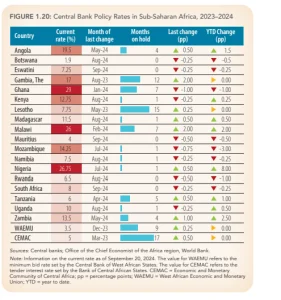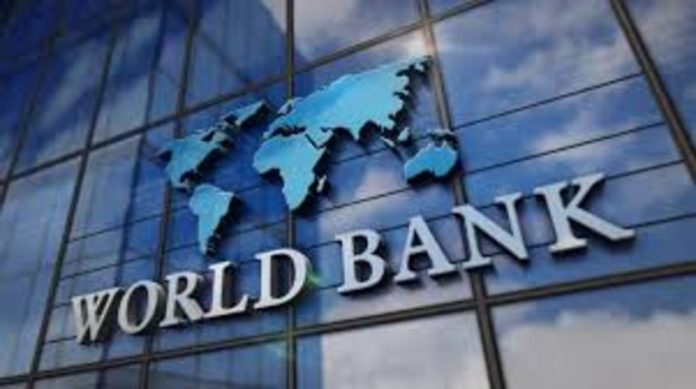Ghana’s monetary policy rate of 27.0% is the highest in Africa, the World Bank has revealed.
In its latest October 2024 Africa Pulse Report, the World Bank said the Bank of Ghana and other Central Banks have kept interest rates higher to anchor inflation expectations properly and secure a smoother path to their inflation targets.
“Central banks in countries that still have double-digit inflation and weakened domestic currencies (such as Angola, Nigeria, and Sierra Leone) will keep monetary policy rates higher for longer and, in fewer cases, they may increase their policy rates—particularly in countries where inflation rates still have not peaked. Broadly, currency weakness, slow fiscal adjustment, and cost pressures are among the factors driving these countries to keep a tighter stance for a longer period”.
For instance, it said Ethiopia, Ghana, and Nigeria are among the worst performing in Africa this year, and their currencies continue weakening while demand for foreign exchange remains pressing.
Nonetheless, the World Bank pointed out that with an improving inflation outlook and stabilising currencies, some countries are likely to end their hiking cycle and start reducing monetary policy rates.
However, price stickiness and the need to anchor expectations and restore the ability to achieve targets may delay benchmark rate cuts.
BoG cuts policy rate to 27.0% in September 2024
The Bank of Ghana cut its benchmark policy rate by 200 basis points to 27.0% in September 2024, the second rate cut since 2021.
Before that, UK-based Fitch Solutions in August 2024 stated that the Bank of Ghana would cut its policy rate by 200 basis points before the end of 2024.
The UK-based firm said though this decision aligned with its expectations, the significant depreciation of the cedi and the BoG’s hawkish tone have promoted it to revise its end-2024 forecast upward from 25.00%.






